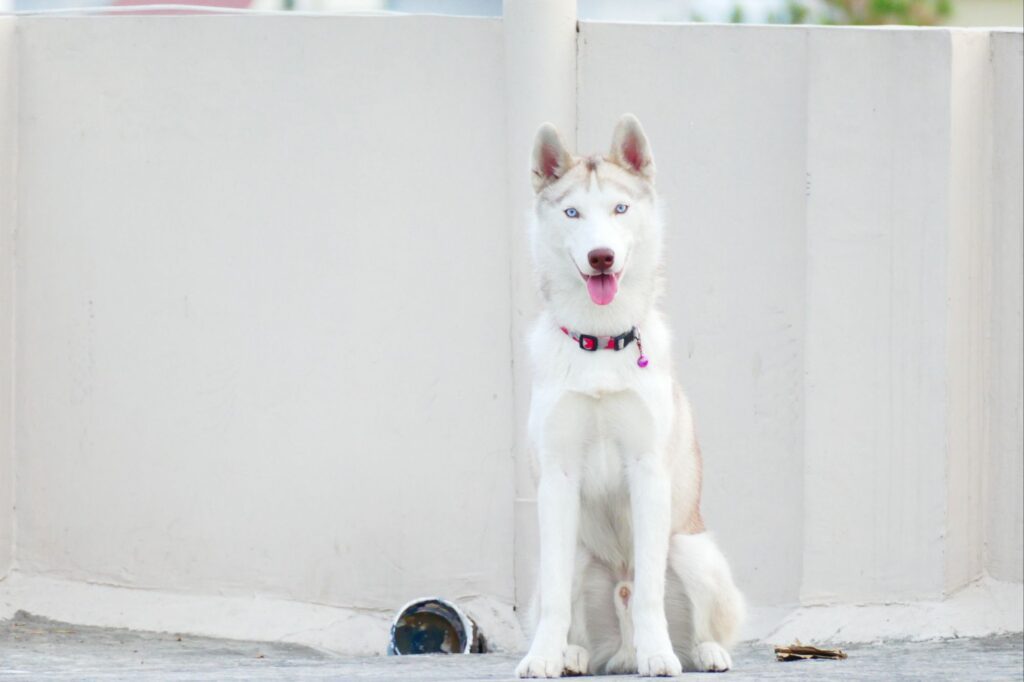Physical Address
304 North Cardinal St.
Dorchester Center, MA 02124
Physical Address
304 North Cardinal St.
Dorchester Center, MA 02124

Husky, with their striking appearance and captivating blue eyes, have long been revered as one of the most fascinating dog breeds. Known for their wolf-like features, thick double coats, and friendly demeanor, these Arctic sled dogs have found their way into the hearts of many dog enthusiasts. Beyond their physical allure, one distinctive trait stands out—their hauntingly beautiful howls. In this blog, we embark on a journey to unravel the mystery behind why husky howl, exploring the history, origin, and the various reasons behind this unique vocalization.
Husky trace their lineage back to the Chukchi people of Siberia, who developed this breed for pulling sleds across the harsh Arctic terrain. These dogs were not merely working companions but integral members of the Chukchi families, providing both transportation and warmth in the unforgiving Arctic climate. The bond forged between the Chukchi people and their husky was built on trust, cooperation, and a deep understanding of the canine psyche.
As these resilient dogs gradually made their way to Alaska during the Gold Rush of the 20th century, their impressive sledding abilities and friendly disposition garnered attention. The Siberian Husky officially became a recognized breed by the American Kennel Club (AKC) in 1930, solidifying their place as not just working dogs but beloved family pets.
why vegetarian diet is the best?

One cannot delve into the world of husky without being captivated by their melodious howls. Howling is a deeply ingrained behavior in husky, echoing their ancestral ties to wild canines. Understanding why husky howl involves unraveling the layers of their history and recognizing the various reasons behind this unique vocal expression.
1. Communication and Social Bonds:
In the wild, wolves and wild canines use howling as a means of communication. Husky, being closely related to these wild ancestors, have retained this instinct. Howling allows them to communicate over long distances, serving as a way to locate pack members, convey their presence, or announce their territory.
2. Expressing Emotions:
Husky are known for their expressive nature, and howling is one of the ways they convey their emotions. Whether it’s excitement, loneliness, or even sheer joy, husky use their vocal prowess to express what words cannot capture.
3. Response to Sounds:
Husky possess acute hearing, and they are quick to respond to various sounds in their environment. Sirens, music, or even other dogs’ howls can trigger a husky to join in the chorus. This responsiveness to auditory stimuli reflects their alert and vigilant nature.
4. Heritage and Pack Mentality:
The husky’s history as a pack animal is deeply ingrained in its DNA. Howling is a communal activity that reinforces the pack mentality. Even in domestic settings, a husky may howl in response to sirens or certain sounds, interpreting them as a collective call to action.
5. Seeking Attention:
Husky are known for their sociable and attention-seeking behavior. If they feel neglected or are seeking interaction, they may resort to howling as a way to garner attention from their human companions.

In essence, the enigmatic howls of husky are a testament to their rich history, deep-rooted instincts, and expressive nature. To fully appreciate and understand why husky howl, one must recognize the intricate interplay of their ancestral heritage, social bonds, and individual emotions. As these captivating dogs continue to grace our homes with their presence, their haunting howls serve as a melodic reminder of the untamed spirit that resides within them. So, the next time you hear the soulful howl of a husky, listen closely, for it carries with it the echoes of a timeless connection between humans and these majestic Arctic companions.

Huskiy boast a distinctive appearance that sets them apart from other dog breeds. Their almond-shaped eyes, often blue or multicolored, contribute to their captivating expression. The thick double coat serves as insulation against harsh Arctic temperatures, and their erect, triangular ears add to their wolf-like visage. The breed’s strength, agility, and endurance are well-suited to their historical role as sled dogs.
Huskies are renowned for their friendly and outgoing nature. They are known to be good-natured, social, and often referred to as “gentle giants.” While they exhibit a strong pack mentality, they also display a remarkable independence. Their intelligence and free-spirited personality make them both charming and, at times, a bit mischievous. Huskies are highly energetic, requiring regular exercise and mental stimulation to keep them content.
Being originally bred for pulling sleds over long distances, huskies have a considerable amount of energy. Regular exercise is crucial to prevent boredom-related behaviors, such as digging or excessive howling. Activities like running, hiking, or participating in dog sports can help channel their energy positively. Huskies thrive in environments where they can engage in both physical and mental stimulation.
While intelligent, huskies are known for their independent streak, which can present training challenges. They may not always be eager to please, requiring consistent and patient training methods. Positive reinforcement and rewards-based training often yield better results, and early socialization is crucial to ensure a well-behaved adult husky.
The thick double coat of a husky requires regular grooming to prevent matting and reduce shedding. Brushing two to three times a week helps maintain a healthy coat and minimizes the amount of loose fur around the house. Huskies shed more heavily during seasonal changes, a phenomenon known as “blowing coat.”
Huskies, with their captivating appearance, spirited personality, and melodic howls, embody a unique blend of beauty and strength. Understanding the various facets of their temperament, exercise needs, and grooming requirements is essential for those considering them as companions. As the legacy of sled dogs from the Arctic, huskies continue to enchant and leave an indelible mark on the hearts of dog lovers worldwide. Beyond their mystical howls, these remarkable canines stand as a testament to the enduring connection between humans and the resilient, free-spirited husky.